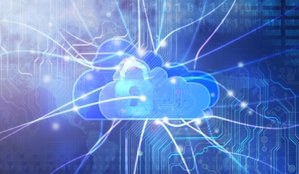
The more we work from home, the more we rely on online solutions — particularly those based in the cloud — to help us stay connected to our colleagues. But this strategy, like any outsourced information technology solution, must focus on keeping data safe and secure so that no breaches or other cybersecurity issues derail day-to-day operations.
An increasing number of businesses are dealing with the reality of a distributed workforce. According to the Australian Bureau of Statistics (ABS), 2 of every 5 employed people worked from home at least once per week in February 2021. This is a 17% increase over the 24% of people who worked from home at least once a week before March 2020. Experts such as Michael Brennan, head of the Productivity Commission, say the trend of hybrid work is likely to continue.
The ABS also reports that more than half of all businesses in Australia used cloud computing in the year 2019-20, an increase of 12% from the previous year. The number of smaller businesses — those employing no more than 19 people on staff — using cloud computing is even higher. A full 65% report reliance on the cloud. This is up from 50% the previous year.
The confluence of these two increases represents the potential for risk, given that colleagues who work from home have varying levels of knowledge about safe internet use and handling sensitive client data or company files away from the office. Managers then will need to take seriously the task of getting all colleagues on the same page about maintaining updates and secure networks.
Choosing the right solutions
Anytime you outsource some of your business functions, you give up some oversight and control. This may be done to give you access to benefits your small business might not otherwise access. Still, you will do well to think about ways to limiting your business' exposure to cybersecurity risks. This will include having a better understanding of the cloud-based services out there. There are many SaaS solutions on the market. This common abbreviation is short for software as a service, where a provider develops and maintains the software, including updates, and the tools are available piecemeal on a pay-as-you-go basis. Microsoft Teams, for example, is a popular SaaS application.
These solutions can be ideal because the software is constantly updated so as to thwart the latest cybersecurity challenges. For you, a client of SaaS, the idea is that updates seem to happen seamlessly in the background. Also, SaaS tools introduce a common, shared platform for the entire organisation as well as a standardised user experience and set of security levels.
Key tools for staying safe
Yes, your SaaS solutions do seem to be providing security "on their own." But it is unwise to think of your cloud solutions to be completely impenetrable. You'll want to make sure security updates are downloaded and installed by each colleague. When the team works together to use the cloud-based programs in a safe way, the business can benefit from IT services beyond in-house capabilities. So, while not a complete list, here are some key ways to stay safe while leveraging the benefits of the cloud:
MFA: This abbreviation stands for multi-factor authentication. Using multiple channels to authenticate a user's identity — for example, sending a PIN to your smartphone when you are logging in from a laptop — is quite valuable. All colleagues should have MFA turned on for all devices accessing business apps.
Encryption: Whether you are concerned about the data you're using at the moment or data at rest, an encryption tool can make sure your data is transmitted or saved in a way that would be seen as a complete jumble by anyone who intercepted it.
FWaaS: You're likely familiar with the concept of firewalls, software tools to stand guard to protect your network. A cloud-based firewall as a service can integrate with your cloud-based resources and help protect against malware. Think of it as a way to keep your network safe from threats no matter where it physically exists.
While we're not IT professionals, we are happy to assist you with your other business and tax needs. Contact us today.



